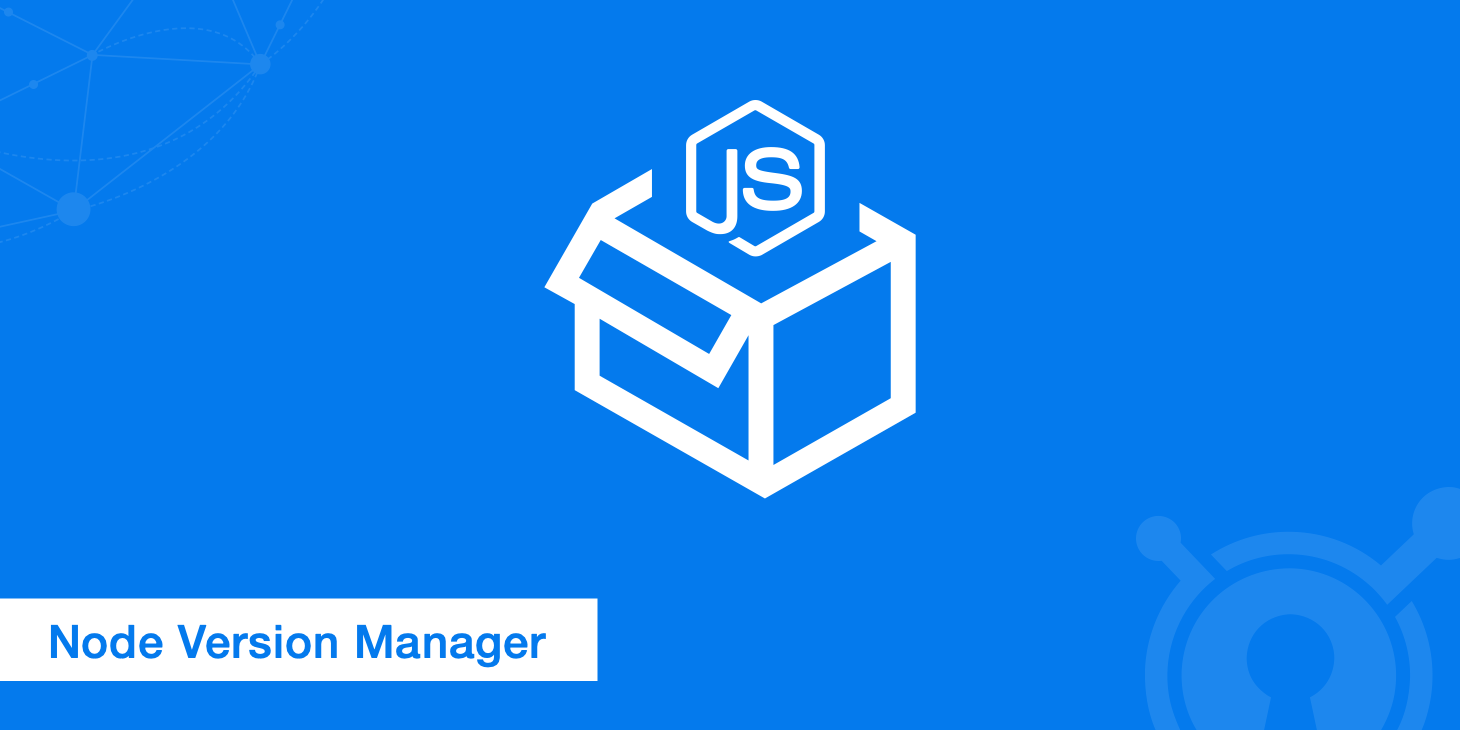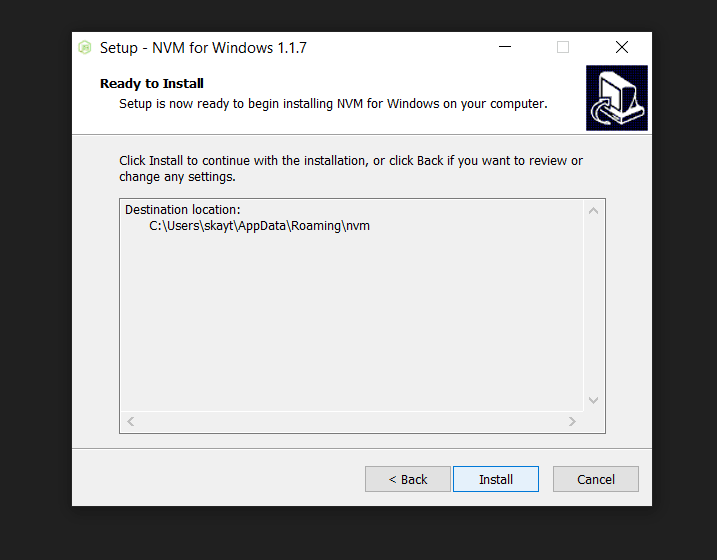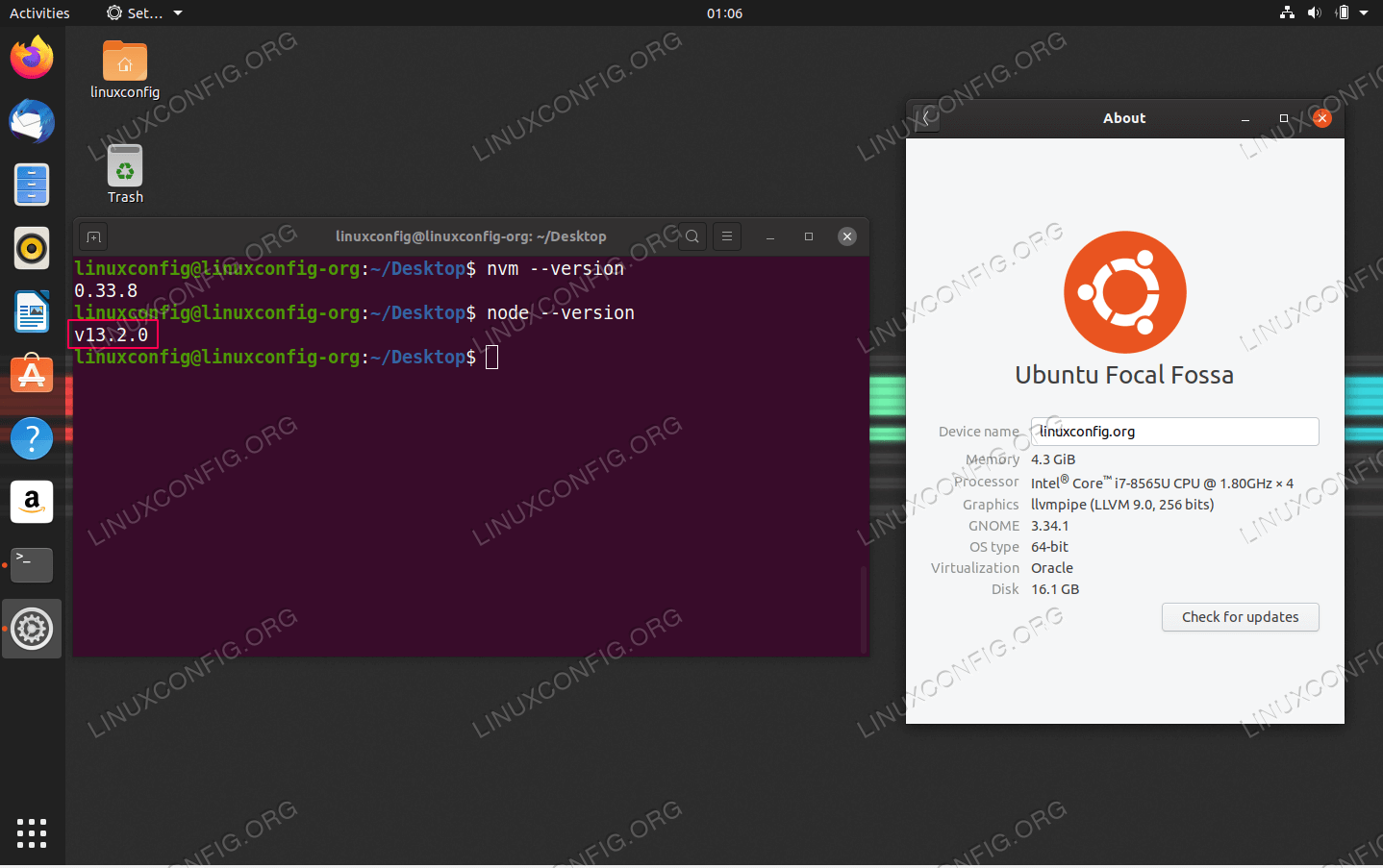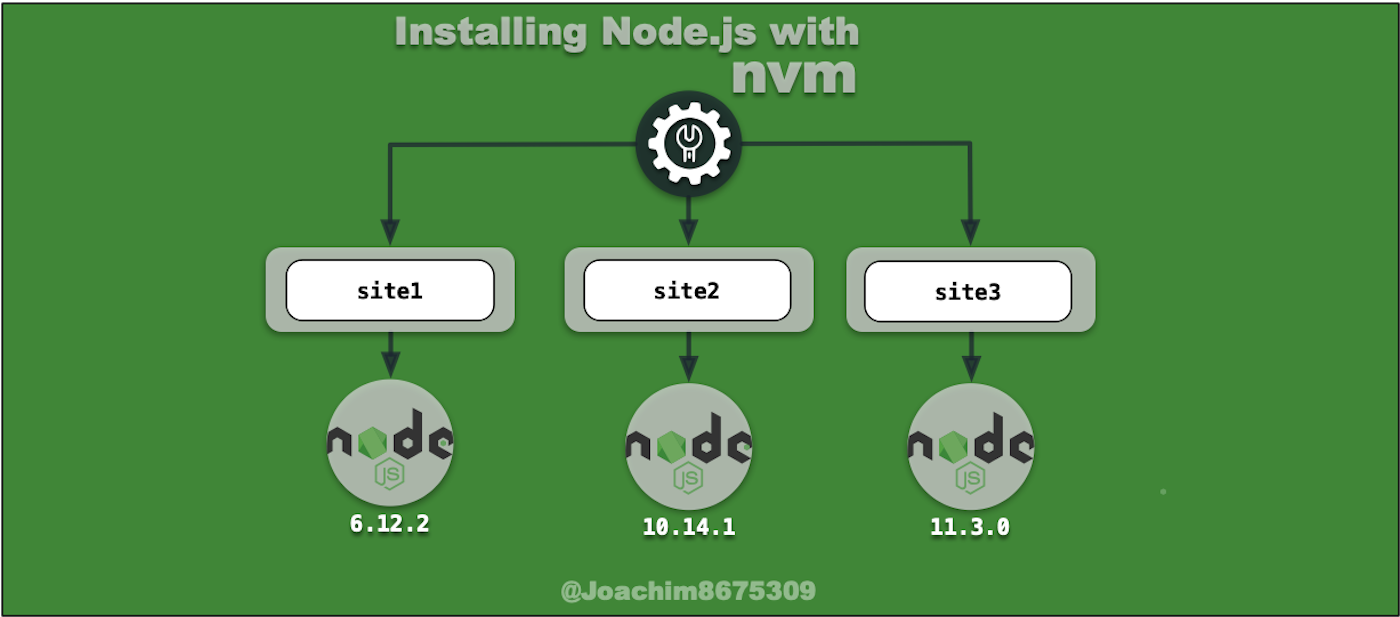
- #NVM INSTALL NODE VERSION FULL VERSION#
- #NVM INSTALL NODE VERSION INSTALL#
- #NVM INSTALL NODE VERSION CODE#
#NVM INSTALL NODE VERSION INSTALL#
This command will help us to download and install every currently available update using the Ubuntu repository. Ive recently found a few nvm commands that I found really useful during local development. Whether your host machine or CI, building and testing your apps on different Node versions is a necessity.

Installing NVM for Node.js in Ubuntu 20.04 Step 1: Updating the Systemīefore going to install any new package on our system, it's always suggested to update our system with the help of the apt-get update or apt update commands. As Ive shown you in the past, nvm an excellent utility for switching between Node.js versions.
To install the latest release of node, use node, which is an alias for the latest version. It’s a good idea to check out the commands the are available : Shell. This will print out the version number to screen.

We should have a tool, i.e., apt installed on our server. To install a specific version of Node.JS, specify the desired version number. We can now check which version of NVM has been installed.Add the following to /.zshrc or your desired shell configuration file: export NVMDIR'HOME/.nvm' -s '/usr/local/opt/nvm/nvm.sh' &. You should create NVMs working directory if it doesnt exist: mkdir /.nvm 2. We need to have an active 20.04 server in Ubuntu. Assuming that you have installed nvm using brew (I am on a mac), I mean something like brew install nvm, all you need to do is: 1.This tool will save lots of effort and time undoubtedly. Make sure your system have curl installed. Open a terminal on your system or connect a remote system using SSH. NVM provides a simple bash script for the installation on Linux systems. One can establish their applications with the help of the tool. This tutorial will explain you to install NVM on CentOS/RHEL 7/6 systems and manage multiple Node.js versions. Installing Node.js and npm To install the latest version of Node.js, run the following: nvm install stable Optional: To make this version your default version. Any developer of node.js working on more than one project which needs different versions of node.js usually prefers NVM for installing, uninstalling, and switching various versions of a node rather than manually installing and uninstalling all versions needed for all projects. NVM is used to install and manage distinct types of node.js versions in several environments of Linux. It permits developers for creating the functionality of scalable backend with the help of JavaScript, a language almost everyone is already known from web development (browser-based). It’s a bash script that has the capability to manage multiple active versions of node.js, with functionality such as installation, executing commands with specific node.js versions, setting the PATH variable to use a specific node.js versions, etc. Node.js is a runtime of JavaScript for programming on the server-side. The Node Version Manager allows admins to easily manage node.js versions. Also, it gives an option for auto-selecting the version of the node with the configuration file, i.e. Also, we can select a particular version of the node for many applications. We can install more than one version of Node.js on one system with the help of the NVM utility. NVM can be described as a Node Version Manager tool.

#NVM INSTALL NODE VERSION CODE#
Usually, this activity is implemented for testing the code with distinct versions. We can install any Node.js version and even switch our version easily using this tool. If we are a developer of Node.js or a beginner then it's very essential for us to have knowledge about this tool. Node Version Manager is one of the famous tools available for the version management of Node.js. Now install the latest stable version of node.In this article, we will install NVM on the 20.04 version of Ubuntu.

Now check if the nvm is installed by typing: The script clones the nvm repository to ~/.nvm and adds the source line to your profile (~/.bash_profile, ~/.zshrc, ~/.profile, or ~/.bashrc). To install or update nvm, use the install script using cURL:
#NVM INSTALL NODE VERSION FULL VERSION#
The full version of Raspberry Pi Raspbian comes with node.js pre-installed but if you chose to install the light version than you will need to follow these steps to install node.js. A number of our examples use node.js so you may need to install node before you can run our JavaScript examples. Node Version Manager (NVM) is a tool that allows you to install versions for node.js.


 0 kommentar(er)
0 kommentar(er)
